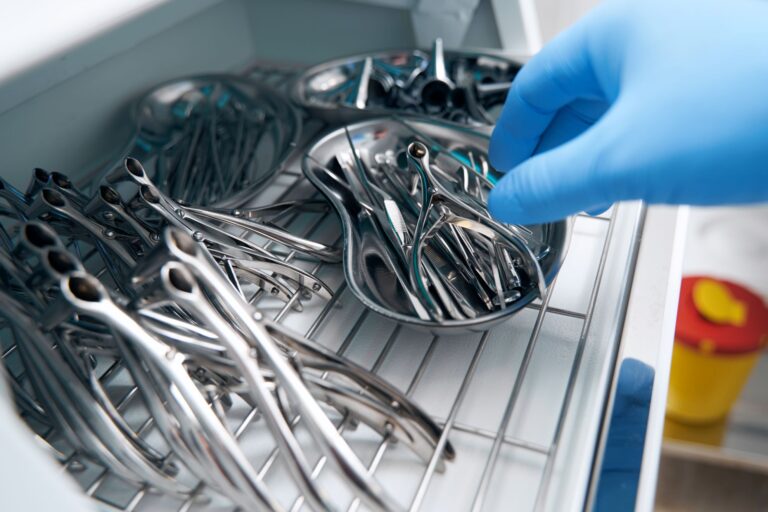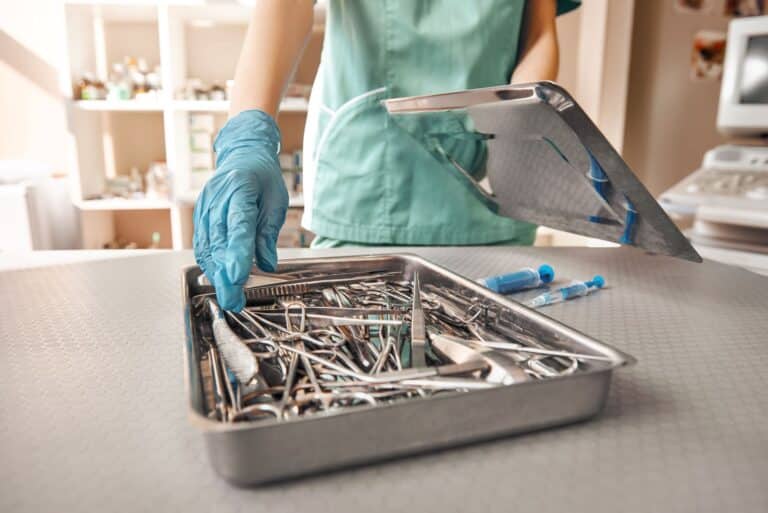Have you ever wondered how to recycle electronics? You hear the term recycling often, as it’s a part of our daily lives when it comes to recycling food items and other materials around your home. But what about electronics? Many people are unaware of just how electronics are recycled in the first place.
Whether you want to know how electronics are recycled or how rare elements are used, you’ve come to the right place.

In our blog, you’ll read a step-by-step guide on how to recycle electronics and what different types of electronics you can recycle.
What is Electronic Recycling?
To get into electronic recycling, you must first understand what electronic waste is. Electronic waste is trash that is broken from electronic devices. This is sometimes referred to as “e-waste.”
Many electronics today contain harmful chemicals that are hazardous to us and our environment. If you do not correctly dispose of your electronics, these chemicals can pollute our air, soil, and water. To recycle electronics in Atlanta involves the reprocessing of electronics to reuse them.
Electronic recycling involves using the material from broken or old electronics to make new electronic products. Electronic waste can take the form of computers, hard drives, home appliances, and much more. Electronic recycling has become more popular because of its ability to help our environment.
With millions of people using electronics every day, once they’ve reached their capacity, they’re wasting away in our landfills. Only a small percentage of electronics are recycled today, and that’s a statistic we’ll need to improve on.
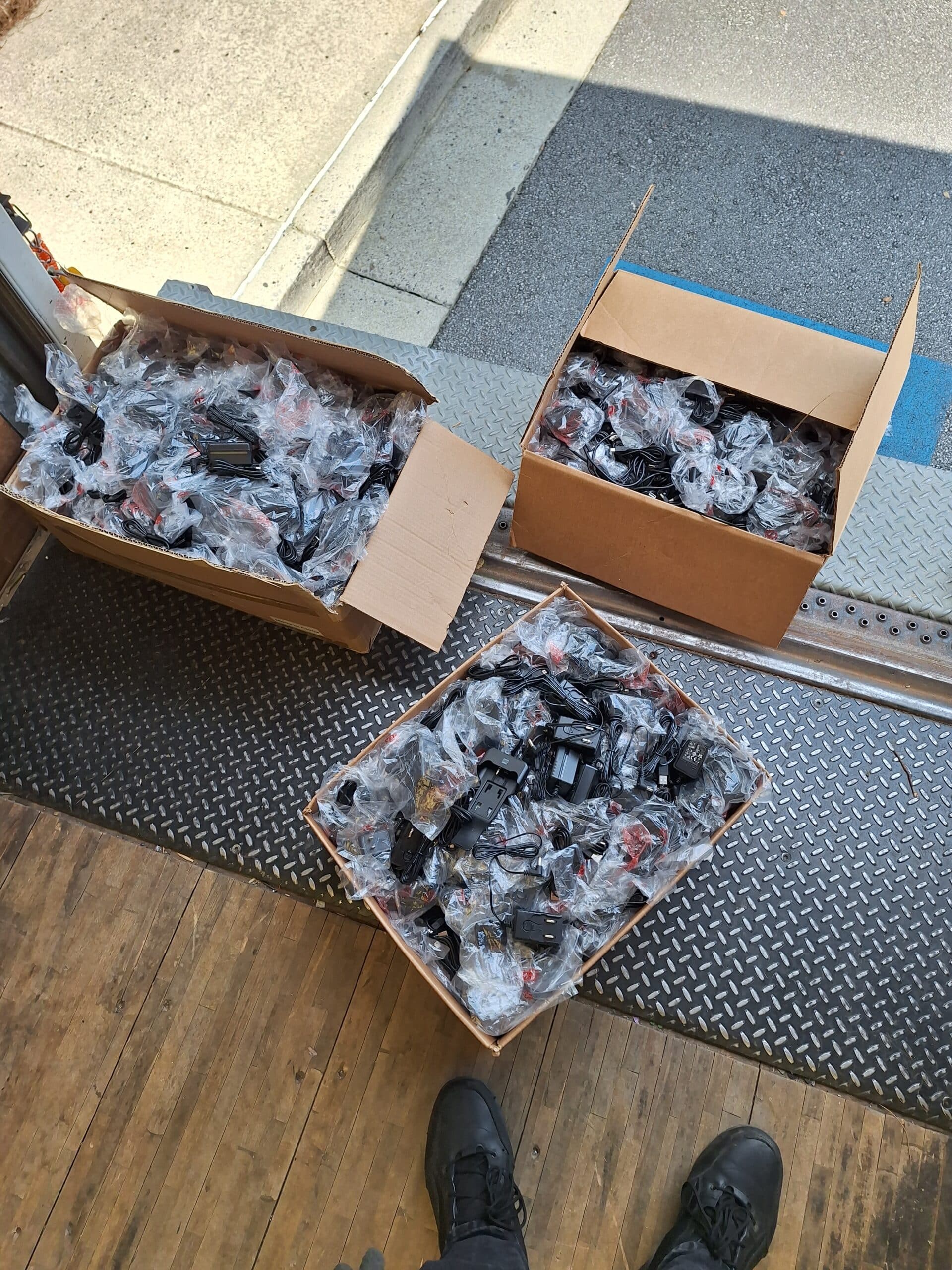
Different Types of Electronics You Can Recycle
In our technology-driven world, we use our electronics for almost everything, like entertainment, education, business purposes, etc. Yet, similar to the food we eat, everything expires or reaches its lifespan at some point. Electronic waste is different from the regular garbage that you put out on trash days.
With new electronics coming out yearly, electronic waste production is supposed to reach nearly seventy-five metric tons by the year 2030. Just about every electronic in your home can be recycled. To recycle electronics in Atlanta, you should know some of the types of electronics you can recycle.
Computers
When your computer has reached its lifespan, and you need to upgrade your computer or laptop, you shouldn’t let your old computer go to waste. Almost every part of your computer can be recycled, including the hard drive, but a professional must properly dispose of its battery. When recycling a hard drive, professionals can perform a hard drive shredding service to ensure none of your personal data is left behind.
Smartphones
Did you know that smartphones only have an average lifespan of two and a half years? The parts of a smartphone can hold value for much longer than that. To recycle a smartphone, a professional can melt down the plastic and be reused.
Gaming Devices
Gaming consoles come out just about as often as smartphones do. That said, if you purchased a new gaming console and are unsure of what to do with your old one, you can recycle it, including accessories. In addition, you can recycle headsets, gaming controllers, and other old games.
At Beyond Surplus, some of the items we can recycle are computers, laptops, smartphones, home network equipment, video game consoles, medical equipment, and much more!
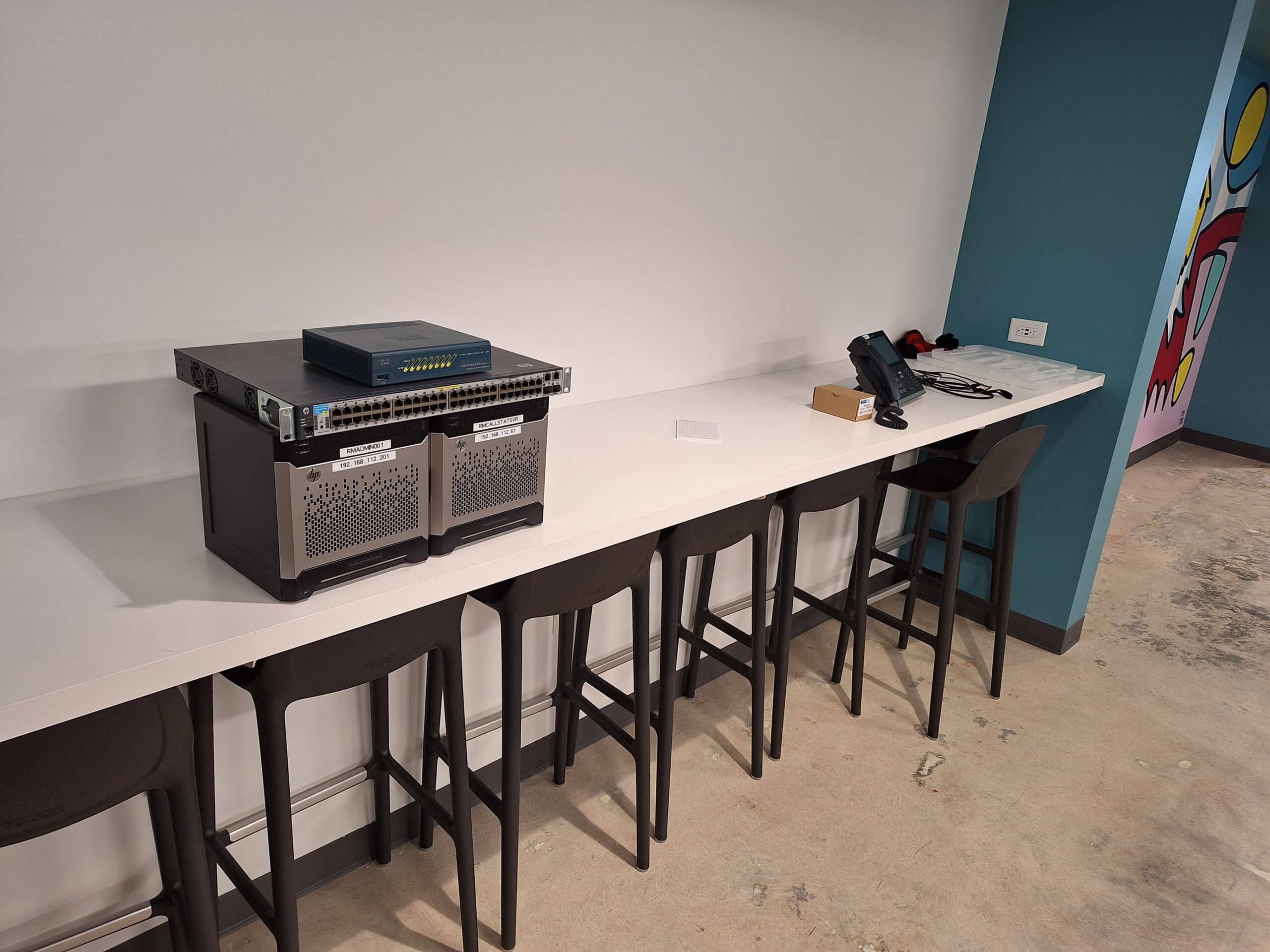
A Step-by-Step Guide on How to Recycle Electronics in Atlanta
Below, we’ve put together a step-by-step guide on how to recycle electronics in Atlanta.
1. Collecting
One of the first things you’ll want to do when recycling your electronics is collect the electronics you want to recycle. Oddly, you probably have a drawer or closet with old electronics lying around. You can also find old electronics to recycle in other areas, such as:
- At work
- School buildings
- Medical facilities
- Manufacturing facilities
- Warehouses
- Digital advertising agencies
No matter what setting you’re in, if you’re able to get rid of your old electronics by recycling, it’s an excellent choice. If recycling electronics at work, you can even create a campaign and get your employees on board.
2. Sorting
One of the most important things you’ll want to do when you go to recycle electronics in Atlanta is to sort your electronics. Prior to sorting, electronics will sometimes go through the shredding process first due to the different elements inside of the electronic that must be extracted. We’ll touch more on shredding as you continue reading.
Many electronics are made up of metals, plastics, and other elements. To sort through elements, electronics must be shredded and taken apart first. After the electronics have been shredded and taken apart, they can then be sorted and recycled.
During the sorting process, any hazardous materials are taken down before continuing forward with the recycling process.
3. Dust Extracting
Once the electronics have been sorted, the leftover pieces from the device go through the dust-extracting process. While on the conveyor belt, dust particles are removed from the pieces, collected, and disposed of. The reason electronics go through the dust extraction process is to ensure that no environmental degradation occurs during the recycling process.
4. Magnetic Separation
Once the dust extraction has been completed, the magnetic separation of metals can occur. During the magnetic separation process, magnets are used to attract metals and separate them from other materials. During the recycling process, metal is separated from plastic, which is a vital part of the recycling process.
5. Purification
If you’re going to recycle electronics in Atlanta, electronics must go through a purification process. The purification process ensures that all elements have been broken down and are correctly recycled. Afterwards, the electronics are then analyzed and purified to improve the quality of the electronics.
If a recycling center has the ability to melt down metals, it can strip away the paint or any other elements found on the metal. Once removed, the metals can then be purified efficiently.
Some recycling centers will also put their electronics through a reactor to extract rare elements. By removing and purifying electronics, it ensures that rare metals can’t make their way into the environment and affect humans or plants.
6. Shredding
One of the parts of the recycling process that happens during the earlier stages is the shredding process. The majority of the time, the shredding process can be completed by hand, where every electronic device is taken apart. Once the shredding process is completed, the electronics can then be sorted, which we covered earlier.
7. Water Separation
After the magnetic separation process has been completed, water separation can then occur. To safely and efficiently separate glass from plastic, hydraulics are used. This is similar to the separation process when it comes to separating metal and plastic, but with glass.
8. Transport to a Recycler
One of the most essential steps to recycling electronics is the transportation process. When recycling electronics, you’ll want to ensure you’re sending your electronics to a center that is capable of removing your personal data from your devices before the recycling process begins.
You should also check to see if the recycling facility is environmentally friendly and follows the proper protocols when recycling electronics. Some recycling services will even offer transportation options to come to pick up your electronics. This is a convenient option, especially if you have any heavy electronics you need to recycle.
At Beyond Surplus, we offer a pick-up services for businesses within 50 miles of Atlanta.
9. Resell
Once the electronics have gone through every step of the recycling process and have been broken down, they can now be prepped for resale. All of the elements of the electronics can either be recycled or sold to other facilities to make new materials.
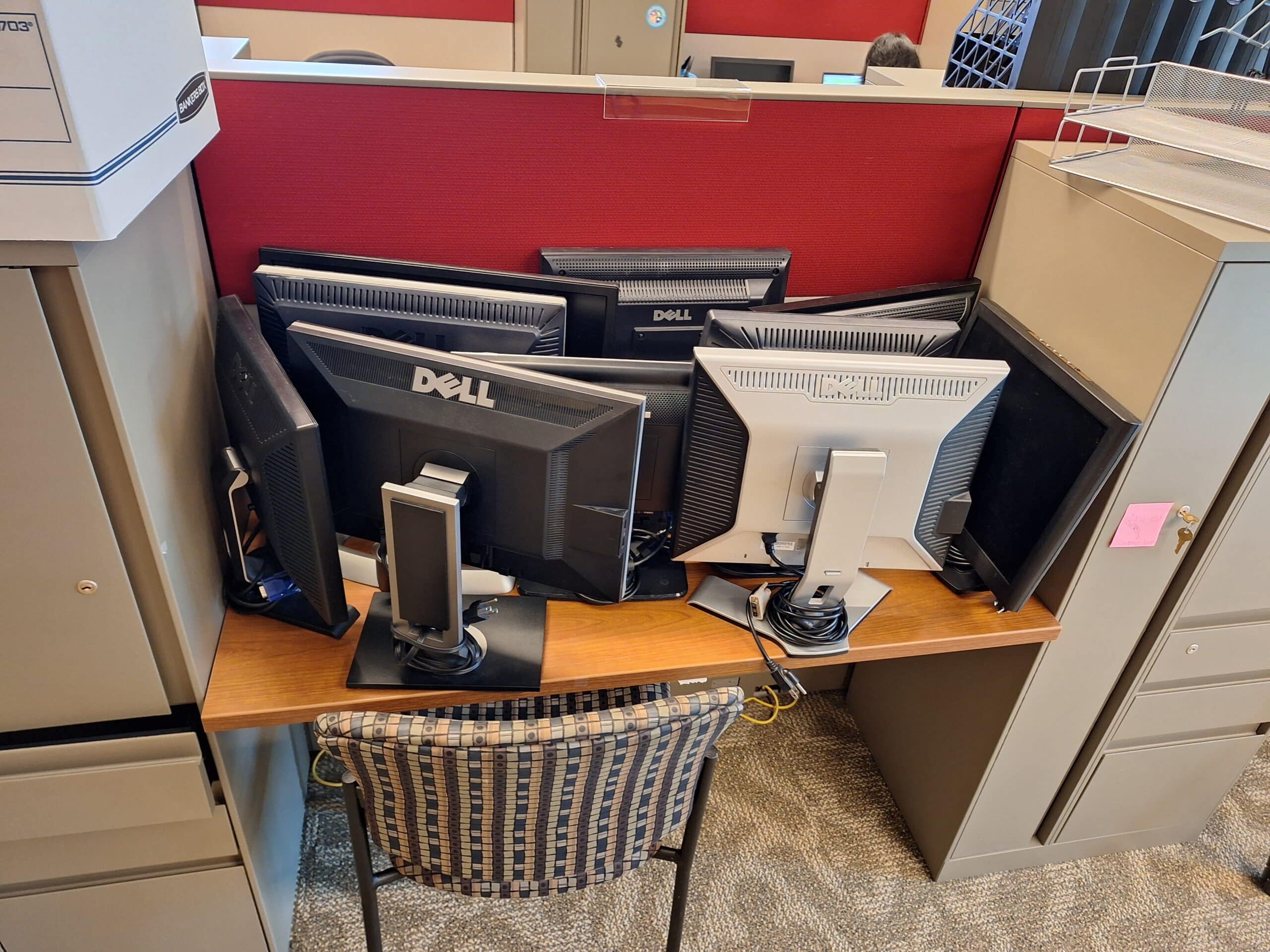
Why Eliminating Electronic Waste is Vital
One of the primary reasons we need to eliminate electronic waste is to conserve our resources. Too much electronic waste can harm our environment; therefore, it’s essential to preserve what’s left of our fossil fuels here on Earth.
The most surprising fact about recycling electronic waste is that many electronics thrown out with regular garbage are still in working condition. Many electronics that we use daily contain metals such as platinum, gold, and silver. When you throw your electronics out with the garbage, you’re getting rid of some of these valuable metals.
A large amount of the world’s gold is said to be found in electronic waste. These metals alone help create new devices and advancements in technology.
Components in Electronic Waste
There are several reasons why electronics can’t be broken down and thrown away like regular waste. One of the reasons why electronics can’t be thrown out is due to its hazardous components.
Many electronics today contain hazardous components that are harmful to our environment and to humans. While there are special storage containers that store these components, once cracked or broken, these components are ineffective.
There are, however, some electronics with harmless components too. Some components in electronics that are harmless are aluminum, copper, gold, and zinc. While these can be disposed of via regular garbage, it’s highly recommended to recycle them.
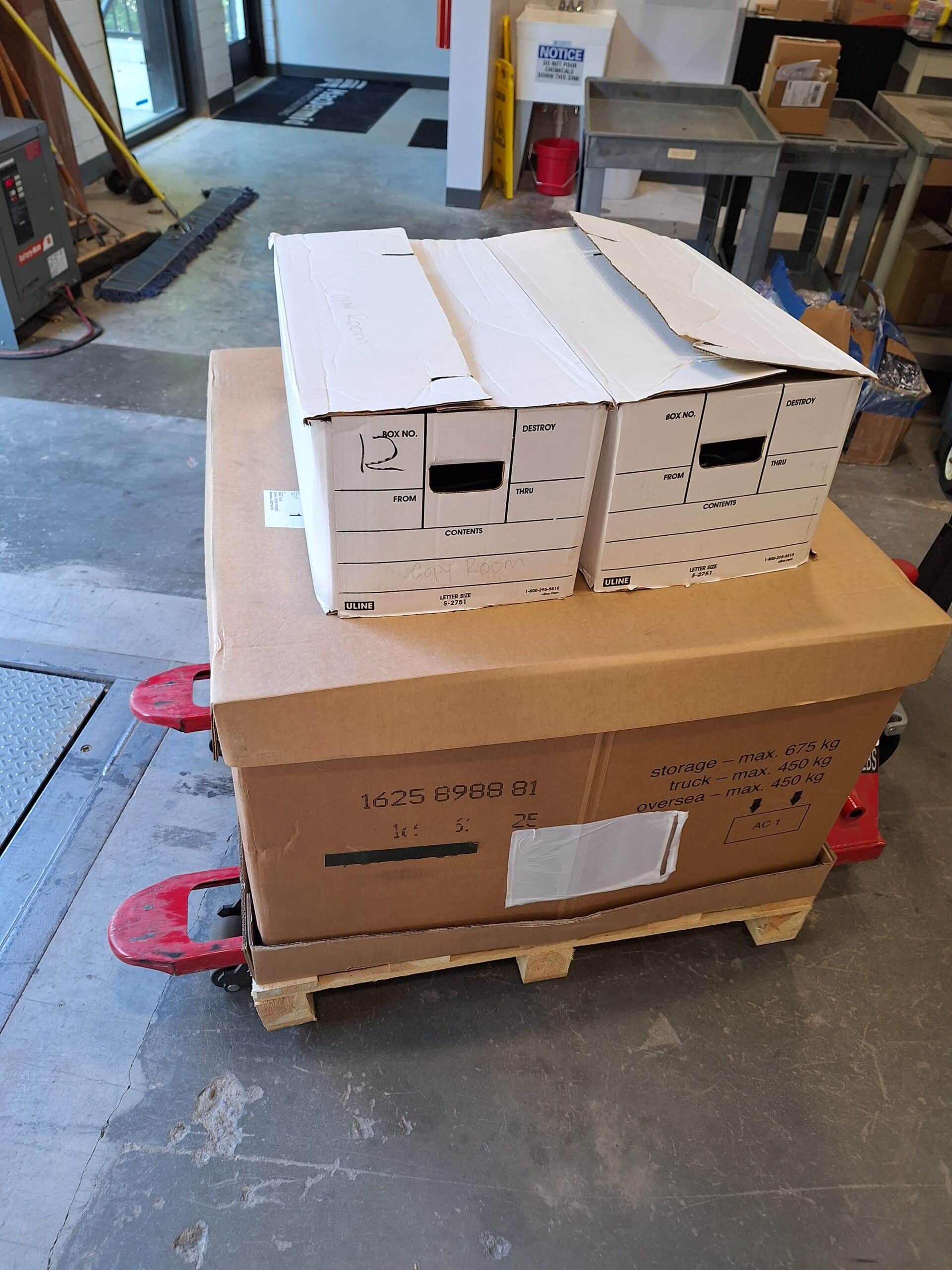
Ways You Can Recycle Electronic Waste
With newer electronics continuing to be released every year, it’s essential to know how you can recycle your electronics. The good news is more people are becoming aware of just how harmful electronic waste is to our environment. However, there is often confusion about how a person can recycle their own electronics.
Here are some ways you can recycle electronics in Atlanta:
- Don’t throw your electronics in the garbage
- Use a reputable electronic waste recycler
- Return old electronics to their manufacturers that recycle them
- Check for pickup or recycling events in your area
- Wear protective gear when handling leaking electronics
- Separate broken glass into boxes
- Scrub your personal data from your computers and other devices to protect your personal data from being stolen by hackers
It’s inevitable that all electronics, at some point, reach their limit. Your old electronics can contain personal information, photographs, financial information, and more. Before you get rid of, donate, or recycle your electronics, you should ensure that all of your data has been completely wiped.
Even if you’ve barely used your device, you should still ensure that all data has been wiped. Simply deleting data isn’t enough to erase it. For your convenience, there are hard drive shredding services available that will destroy all data without a trace left behind.
At Beyond Surplus, we strive to provide a safe and secure solution to properly disposing of computers, their components, and other forms of electronic waste. Our services are convenient, secure, and cost-effective for Atlanta and surrounding areas.
You can recycle your old computers and electronics with our free services. If you’ve been wondering how to recycle electronics in Atlanta, our experts can help! In addition to helping residents, we also offer our services to small businesses, colleges, and other educational facilities.
To receive a custom solution for your company’s electronic disposal needs, call us today!
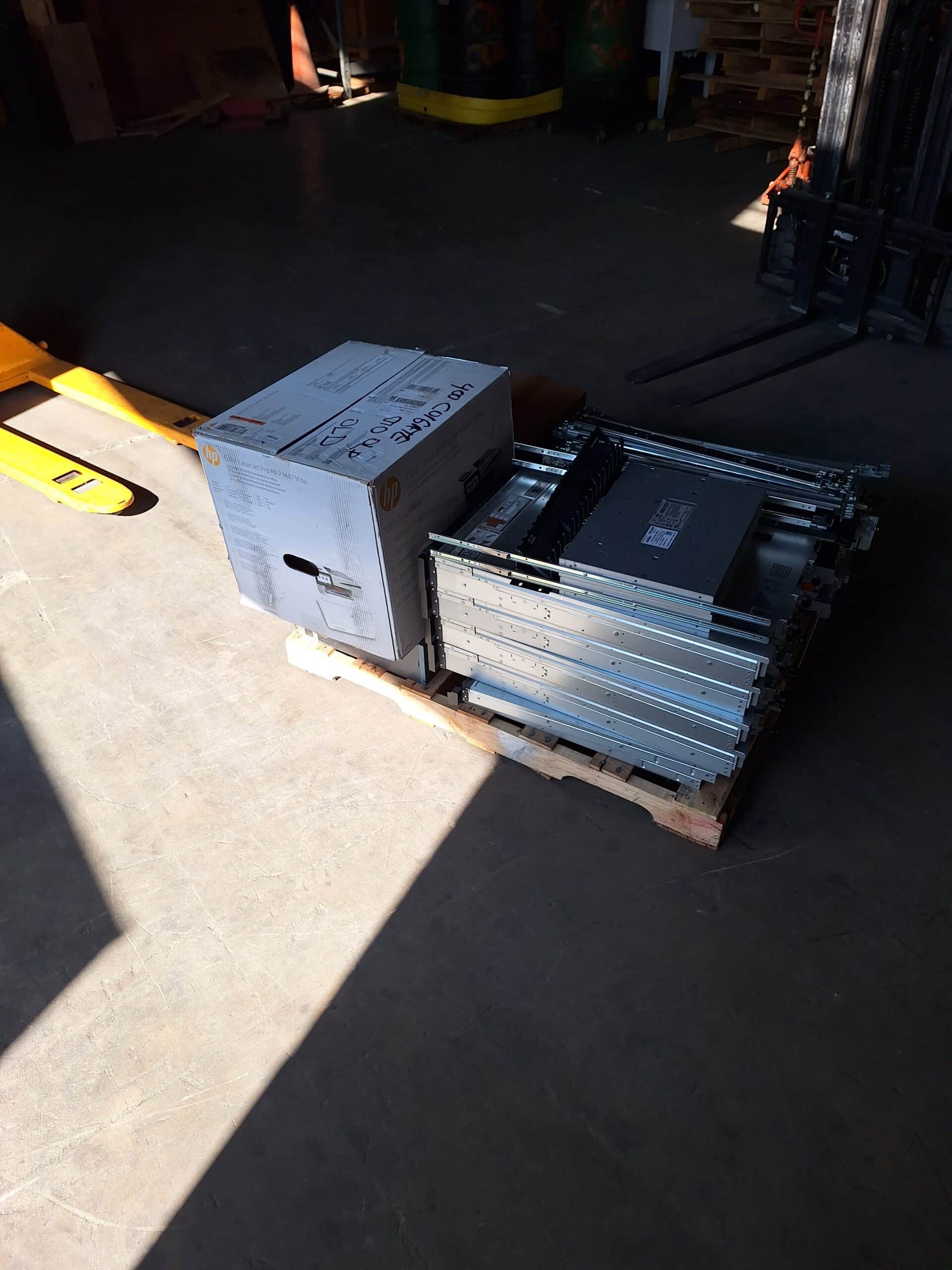
How to Recycle Electronics in Atlanta: FAQ
1. How do I dispose of electronics in Atlanta?
To dispose of electronics in Atlanta, you can call Beyond Surplus at 404-905-8235.
2. How do I dispose of an old TV in Atlanta?
To dispose of an old TV in Atlanta, televisions are collected curbside with residential garbage.
3. How do you dispose of computers and electronic devices?
To dispose of computers and electronic devices, you can contact Beyond Surplus, as donating and recycling is the best method to conserve natural resources.
4. Why is electronic waste bad?
Electronic waste is terrible due to the presence of toxic chemicals such as mercury, lead, and other poisonous materials.
5. Should you remove the hard drive before recycling your computer?
You should permanently destroy your hard drive device with personal data before recycling your computer.
6. How do I destroy a hard drive before recycling my computer?
You can destroy a hard drive through hard drive shredding.

